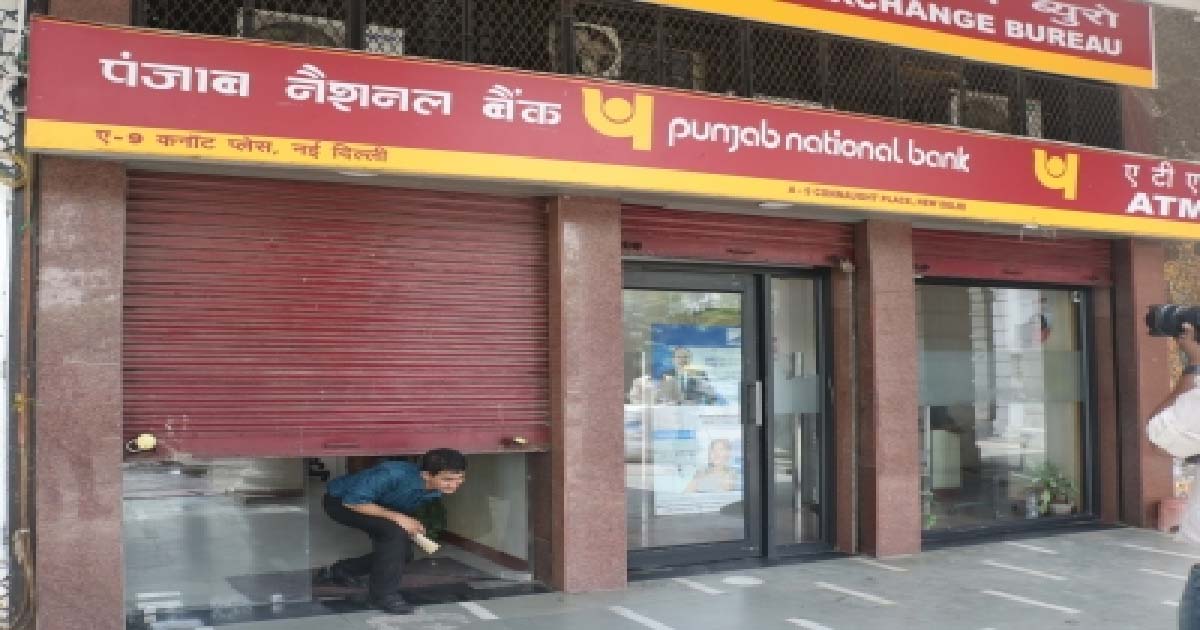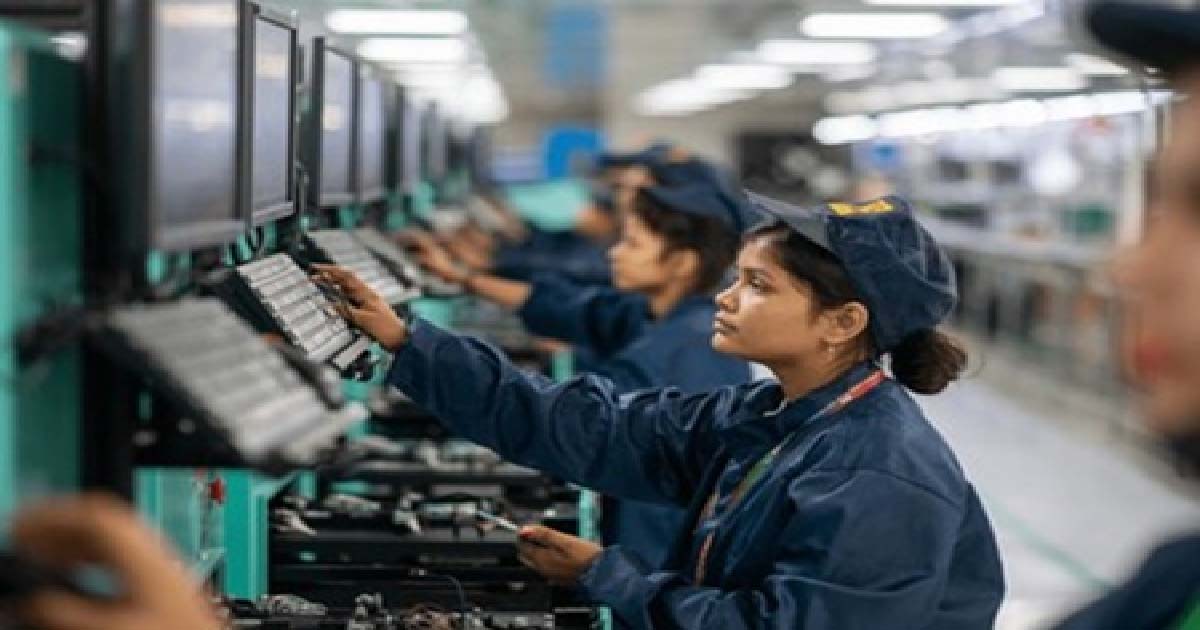Business
‘Atlas of Affluence’: India’s first yearly white paper on luxury launched

Amidst leading luminaries of industries spanning across the business of luxury, the Atlas of Affluence (AOA) 2022, created by The Voice of Fashion (TVOF, the daily digital magazine that tracks and leads conversations on Indian fashion, design, crafts and retail and a division of Reliance Brands, was launched here on Friday.
It is the first such white paper from India that dissects consumer behaviour studied through the prism of luxury and a collective reflection on what affluence means in India during the two years of the pandemic.
Charting the post-pandemic market and the clearly altered consumer mindset through a specially commissioned study across six cities and markets of India, AOA 2022 has been published as a book with exclusively commissioned artworks.
The study used the time graph of “pre-pandemic” and “post-pandemic” months to specify a comparative matrix.
It also helps debunk long-held ideas about what affluence and luxury have meant to Indians.
The study was formulated over the last several months through scientifically-designed consumer research to understand metro and non-metro differences among buyers, brands, and behavioural ideas behind consumption.
The other sections of this white paper move beyond luxury as a product to explore granularities of affluence.
“In finance and business studies affluence is about assets compared to liabilities. But for an evolved luxury market – which includes aesthetic finesse, awareness, aspiration, affordability and distinction as well as trend-defining choices – affluence brings a new set of affirmations. It is a combination of wealth, assets and high disposable incomes, with socio-cultural awareness, self-knowledge, and a response-able outlook. This comes out clearly in this white paper as the rise of the individual,” said Shefalee Vasudev, Editor, The Voice of Fashion.
Beyond business strategy and numbers, there are a series of columns, interviews, ground reports and features stories on architecture, personal style, the ascendance of India in South Asian design and global luxury, the emergence of the gold collar consumer and the growing market for beauty and wellness.
Also, the study is a consortium, a melting pot of topical, relevant, ready-to-use creative, and commercial insights.
An RBL spokesperson said: “Reliance Brands is happy to support the creation of the Atlas of Affluence, which will become the definitive document for understanding the luxury market in India not just for businesses already operating in this sector but for global businesses looking to invest in the India story. This is the largest exercise ever to decode the affluent consumer across various consumption categories and this will build our own strategic views as we continue to expand in the luxury sector.”
Following are some key takeaways of AOA 2022 at a glance:
– 57 per cent men claim that their fashion spend has increased. As per the RBL data, men’s brand portfolio saw 46 per cent growth in 2021 compared to 2019. For women, it was 14 per cent.
— 76 per cent invest in luxury brands that depict their sense of style over 26 per cent who still see luxury as a means of social assertion.
— 65 per cent of non-metro residents buy luxury on a regular basis against 53 per cent in metros.
— 2 out of 3 among the affluent had shopped luxury online for the first time during Covid-19 restrictions.
— 65 per cent of those shopping online mention that they are eagerly waiting for stores to open.
— 26 per cent Gen Z spontaneously associate luxury with travel and hospitality followed by 21 per cent who associate luxury with fashion and apparel.
— 52 per cent respondents keep celebrity endorsements and influencers in top 2 ranks for key drivers behind brand affinity.
— 58 per cent agree that they have spent more on tech products to curate a futuristic entertainment experience while being stuck at home.
Business
PNB declares Rs 2,434 crore alleged loan fraud against former promoters of Srei firms

New Delhi, Dec 27: Punjab National Bank (PNB) has declared a Rs 2,434 crore alleged loan fraud by the former promoters of Srei Equipment Finance and Srei Infrastructure Finance.
In a late evening exchange filing, the state-run PNB said that “Pursuant to the applicable provisions of SEBI (LODFR) Regulations, 2015 and the Bank’s Policy for determining materiality of events/information required to be reported to the Stock Exchanges, it is hereby informed that the bank has reported borrowal fraud to RBI against the erstwhile promoters of Srei Equipment Finance and Srei Infrastructure Finance”.
PNB said that of the total fraudulent borrowings, Rs 1,240.94 crore is related to Srei Equipment Finance and the remaining Rs 1,193.06 crore is related to Srei Infrastructure Finance.
The public sector lender also said it has 100 per cent provisions for these loans. The bank said the declaration of these two accounts as frauds is based on a forensic audit, which pointed to irregularities such as loans to connected parties and potential evergreening of loans.
However, Srei group has challenged the forensic audit report as the basis for the fraud classification, noting the matter is subjudice.
Other banks such as Punjab & Sind Bank, Bank of Baroda, and Union Bank of India have also earlier declared a loan fraud in connection with Srei companies.
The Srei group has been undergoing an insolvency resolution process since 2021, and the National Company Law Tribunal has approved a resolution plan submitted by the National Asset Reconstruction Company in 2023. The Srei group was sent to the NCLT by the Reserve Bank in October 2021 after it had found governance issues and defaults and the regulator superseded the boards of Srei Infrastructure Finance and Srei Equipment Finance.
In February 2023, NARCL emerged as the successful bidder for SIFL and SEFL which together owed Rs 32,750 crore to lenders. NARCL won the bid in February 2023, got the NCLT approval in August 2023, and finalised the acquisition by January 2024.
Business
India 2nd largest mobile manufacturing country in the world: Minister

New Delhi, Dec 27: India has ramped up electronics production six-fold and is the second largest mobile manufacturing country in the world, Union Minister of Electronics and Information Technology Ashwini Vaishnaw said on Saturday.
In multiple posts on social media platform X, Vaishnaw said that the country has increased electronic exports eightfold over the past 11 years, mainly driven by policy support from the Production Linked Incentive Scheme.
The PLI scheme for Large Scale Electronics Manufacturing has attracted over Rs 13,475 crore in investment and helped achieve production of about Rs 9.8 lakh crore in the electronics sector, driving manufacturing, jobs, and exports, he said.
Vaishnaw highlighted that “over 1.3 lakh jobs were created in the last five years and that electronics is now India’s third‑largest export category, climbing from seventh place”.
He said the country was initially focusing on finished products, but the Electronics Component Manufacturing Scheme supported a shift to “building capacity for modules, components, sub-modules, raw materials, and the machines that make them.”
The Electronics Component Manufacturing Scheme has 249 applications representing Rs 1.15 lakh crore in investment, Rs 10.34 lakh crore in production, and creating 1.42 lakh jobs, the post said, adding it is the highest-ever investment commitment in India’s electronics sector, indicating industry confidence.
Vaishnaw also noted progress in the semiconductor sector, saying ten units have been approved, with three already in pilot or early production. The minister said that “fabs and ATMPs from India will soon supply chips to phone and electronics manufacturers”.
“Electronics manufacturing created 25 lakh jobs in the last decade. This is the real economic growth at the grassroots level,” the minister said.
“As we scale semiconductors and component manufacturing, job creation will accelerate. From finished products to components, production is growing. Exports are rising. Global players are confident. Indian companies are competitive. Jobs are being created. This is ‘Make in India’ impact story!” he noted.
Business
Indian stock market ends holiday-shortened week in positive terrain

Mumbai, Dec 27: Indian equity markets ended the week in a positive terrain, buoyed by expectations of stronger domestic demand, a favourable liquidity outlook and optimism over potential Fed policy easing in 2026, analysts said on Saturday.
The holiday-shortened week opened with a bullish undertone; however, momentum tapered off as the days progressed.
On Friday, Sensex closed at 85,041.45, slipping 367.25 points or 0.43 per cent. Nifty also ended in the red, falling 99.80 points or 0.38 per cent to settle at 26,042.30.
According to market watchers, the year-end lull kept trading largely range-bound, with hopes for a Santa Claus rally diminishing amid the absence of fresh catalysts, limited progress in US–India trade talks, and caution ahead of the upcoming earnings season.
“Sectoral trends were mixed, marked by selective profit booking across most segments, while metals, FMCG, and media stocks offered notable resilience,” said Vinod Nair, Head of Research, Geojit Investments Ltd.
Nifty 50 ended the week at 26,042, continuing to respect its long-term rising channel on the daily chart. The index remains comfortably above the 20-day EMA cluster, preserving the medium-term bullish structure, said analysts, adding that as long as Nifty sustains above the 26,000–25,900 support zone, the overall bias remains positive.
On the domestic front, RBI’s liquidity interventions, such as open market operations and a USD/INR buy–sell swap, helped stabilise the rupee, though persistent FII outflows continued to weigh on sentiment.
Meanwhile, gold advanced on safe-haven demand, while crude prices hovered near multi-year lows, though U.S. steps to tighten pressure on Venezuelan oil shipments could exert upward pressure in the near term
Looking ahead, market sentiment is likely to stay cautious as investors brace for the upcoming earnings season while remaining attuned to global developments and currency movements, said analysts.
Attention will also turn to next week’s data releases, including India’s industrial and manufacturing output figures, manufacturing PMI, and the US FOMC minutes, said Nair.
-

 Crime3 years ago
Crime3 years agoClass 10 student jumps to death in Jaipur
-

 Maharashtra1 year ago
Maharashtra1 year agoMumbai Local Train Update: Central Railway’s New Timetable Comes Into Effect; Check Full List Of Revised Timings & Stations
-

 Maharashtra1 year ago
Maharashtra1 year agoMumbai To Go Toll-Free Tonight! Maharashtra Govt Announces Complete Toll Waiver For Light Motor Vehicles At All 5 Entry Points Of City
-

 Maharashtra1 year ago
Maharashtra1 year agoFalse photo of Imtiaz Jaleel’s rally, exposing the fooling conspiracy
-

 National News1 year ago
National News1 year agoMinistry of Railways rolls out Special Drive 4.0 with focus on digitisation, cleanliness, inclusiveness and grievance redressal
-

 Maharashtra1 year ago
Maharashtra1 year agoMaharashtra Elections 2024: Mumbai Metro & BEST Services Extended Till Midnight On Voting Day
-

 National News1 year ago
National News1 year agoJ&K: 4 Jawans Killed, 28 Injured After Bus Carrying BSF Personnel For Poll Duty Falls Into Gorge In Budgam; Terrifying Visuals Surface
-

 Crime1 year ago
Crime1 year agoBaba Siddique Murder: Mumbai Police Unable To Get Lawrence Bishnoi Custody Due To Home Ministry Order, Says Report












